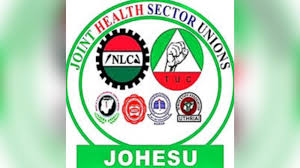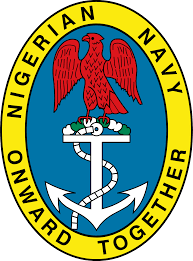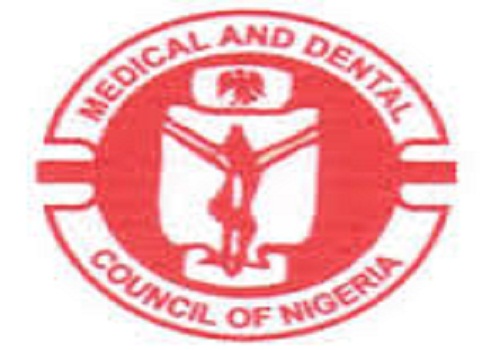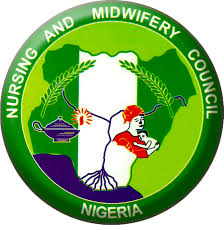An Urgent Call to Action on World Pharmacy Technicians Day, 21st October, 2025
By: SHAGBA HUMPHREY T., National President, Reformed Forum of Pharmacy Technicians in Nigeria (RFPTN)
To all my dedicated colleagues, partners in global health, esteemed representatives, and especially to the leadership of Nigeria’s crucial institutions—the Federal and State Ministries of Health, the Pharmacy Council of Nigeria (PCN), NAFDAC, the NDLEA, and the Nigerian Customs Service.
This is more than a celebration of World Pharmacy Technicians Day 2025; I make an urgent declaration of our collective commitment to confronting the forces undermining public health and regulatory authority in Nigeria. My focus today, aligned with the spirit of "Professionalism and Quality: Pharmacy Technicians as the Frontline Solution to Quackery in Nigerian Pharmacy," requires immediate and decisive action from all stakeholders.
The Silent Pandemic: A Regulatory Crisis
Quackery in the pharmaceutical space is not just poor service; it is a silent, insidious pandemic that actively destroys public trust. It is a direct assault on the integrity of Nigeria’s drug distribution system, leading to treatment failures, drug resistance, and avoidable deaths.
We must confront the uncomfortable truth: The failure to enforce control structures has allowed the legitimate drug business to be dominated by the untrained, critically compromising national drug control.
Our streets and communities are overrun by vendors who have no formal education or training, no higher academic or professional certification, and no accountability. This system has created three devastating consequences which includes:
- Regulatory Failure at the Grassroots: The dominance of non-professionals confirms a fundamental failure in controlling who dispenses medicines, rendering existing regulatory efforts ineffective in our communities.
- National Security and Supply Chain Threat: These non-professional owners of these illegal outlets serve as the critical endpoint for counterfeit and substandard drugs, undermining NAFDAC’s mandate and often acting as unregulated funnels for controlled substances, directly threatening the mission of the NDLEA.
- Professional Exclusion: Certified Pharmacy Technicians are ready to implement professionalism and qualitative pharmaceutical services but are consistently denied the public-sector space to practice, as the market is flooded with the non-professionals/illegals, effectively squeezing out the certified professionals.
The Minimum Standard Mandate
This crisis demands a clear, non-negotiable frontline defense, and that defense is the Nigerian Pharmacy Technician.
Our central mandate is this: The minimum professional standard for the handling, stocking, and dispensing of all categories of medicines, whether in private or public practice, shall be the Pharmacy Technician Qualification.
This is not merely a professional request; it is a safety imperative. Only individuals who have completed the minimum required training under the direct regulation, supervision of the Pharmacy Council of Nigeria and currently in collaboration with the NBTE possess the foundational competence in dosage calculation, inventory management, and patient counseling required for safe medication distribution.
We assert, therefore, that effective drug control and patient safety can only be guaranteed if only two certified professional cadres—the Pharmacist and the Pharmacy Technician—are the only legally allowed professionals to handle and dispense medicines to the Nigerian public. Any other arrangement is a tacit endorsement of quackery.
Our Position: Reclaiming Regulatory Integrity
The Pharmacy Technicians, are your ready-made, scalable solution to reclaim regulatory control and integrity at the grassroots due to three core advantages:
- Proximity and Penetration: Pharmacy Technicians operate precisely where quackery thrives i.e. in the rural areas and peripheral communities where Pharmacists are scarce. Pharmacy Technicians are your eyes, ears, and hands on the ground, serving as the "last mile" of legitimate drug access.
- Structured Training and Accountability: Pharmacy Technicians are products of rigorous, accredited training programs and operate under the direct oversight of the PCN. By empowering them, the PCN instantly gains thousands of trained, accountable personnel upholding ethics, standards and the jurisprudence of pharmacy practice in Nigeria.
- Guardians of the Supply Chain: Pharmacy Technicians essential role in inventory management and accurate dispensing makes them the only trained checkpoint against substandard and controlled substances at the critical point of sale. Deploying a Pharmacy Technician is deploying a certified drug safety officer into the community.
Targeted Call to Action for Regulators
To achieve our theme of "Professionalism and Quality," I present this targeted, policy-backed call for implementation:
To the Federal and State Ministries of Health: The Reformed Forum of Pharmacy Technicians in Nigeria formally requests the immediate, structural recognition of the Pharmacy Technician as an integral, non-negotiable component of the Primary Healthcare Team. We call for the establishment of clear, funded employment schemes and career paths within Primary Healthcare Boards and state hospitals to actively flood the system with certified professionals.
To the Pharmacy Council of Nigeria (PCN): We respectfully urge the Council to leverage its statutory regulatory power. We advocate for the aggressive enforcement and closure of drug premises owned and managed by non-professionals and propose the mandatory integration of Pharmacy Technicians into your inspection and compliance teams to ensure professional competence in regulation across the nation.
To NAFDAC and the NDLEA: Your enforcement efforts are critical. It is a critical requirement that both agencies immediately commence the employment of Pharmacy Technicians within your monitoring and investigation directorates to leverage their specialized pharmaceutical knowledge. Furthermore, we seek to formalize strategic alliances with the RFPTN, utilizing our members as certified intelligence gatherers.
To the Nigerian Customs Service: The Forum insists on the immediate and formal recognition, and subsequent employment, of Pharmacy Technicians at all ports of entry. Their specific training in pharmaceutical inventory, nomenclature, and drug classification is essential to effectively screen for and intercept illegal, substandard, and controlled pharmaceutical imports, thereby securing the nation's drug supply chain at its most critical point.
A Note to the Pharmacy Technicians on Professional Courage
To Pharmacy Technicians, both certified and in training: Our fight for regulatory integrity starts with personal courage. You are the foundation upon which safe practice is built.
You must, without compromise or fear, identify and report any practice, premises of non-professionals, or personnel that fall short of the minimum standards outlined today.
We will not ask the government to fight quackery while we ourselves fail to identify and call out its perpetrators. Be bold. Be ethical. Be the frontline solution.
Conclusion
The Pharmacy Technician is the institutional solution to a drug distribution crisis. They have the training, the certification, and the commitment to uphold the standards of the PCN and secure the supply chain for NAFDAC, the NDLEA, and the Nigerian Customs Service.
On this World Pharmacy Technicians Day, Pharmacy Technicians pledge their loyalty to professionalism. We ask for the political will and regulatory support to implement the minimum standard mandate and ensure that only certified Pharmacists and Pharmacy Technicians handle the nation’s medicines. We must and we will reclaim our professional space for the safety and health of the Nigerian populace.
Thank you.





